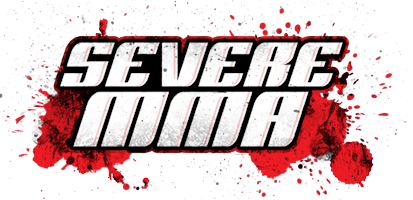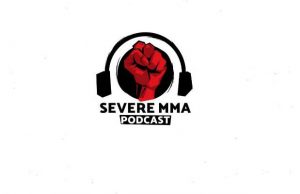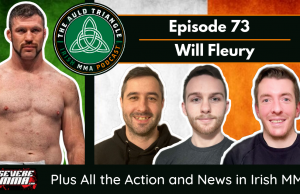
Alistair Overeem appeared before the Nevada State Athletic Commission to answer to the charges of elevated levels of testosterone-to-epitestosteron from a surprise drug test in March. The final result will keep the UFC heavyweight out of action for almost all of 2012.
In a unanimous vote, the Nevada Commission opted to deny Overeem his fight license, but instead of the normal one-year ban before he could re-apply, they lessened the sentence down to nine months.
The over two hour hearing first started with Overeem’s lawyer David Chesnoff requesting for a continuance for 30 to 45 days to allow additional scientific witnesses to be called, but ultimately the commission denied that and the hearing went on as scheduled.
Overeem made his case that following a series of injuries sustained before and after his Strikeforce bout against Fabricio Werdum in 2011, followed by his fight against Brock Lesnar at UFC 141 in December 2011, he needed additional medical treatment.
While on a press tour that first stopped in Texas, Overeem received the name of Dr. Hector Molina from former UFC fighter Tre Telligman, who suggested the Dutch fighter see the physician about his nagging injuries.
After an examination, Dr. Molina prescribed Overeem with a “cocktail” mixture of drugs, one of which was a substance that increased testosterone levels. Molina stated he did not disclose the particular drug’s side effects to Overeem when he administered the injection to help a rib injury that was causing him a great deal of pain.
Overeem was given an additional vial of the substance that he was told to personally inject as well, which he did twice following the initial visit with Dr. Molina.
During the hearing, Dr. Molina, who was present along with Overeem, seemed to stumble and fumble over his words as he tried to explain the drugs given to the UFC heavyweight. As Dr. Molina revealed, the four parts of the cocktail given to Overeem included Vitamin B-12, Dexamethasone, Toradol, and an aqueous form of testosterone.
Dexamethasone is a steroid drug used as an anti-inflammatory and immunosuppressant, while Toradol is another anti-inflammatory drug as well. Molina stated that he has worked with many pro athletes including professional baseball and hockey players.
Ultimately the argument by Overeem’s defense counsel was that he was taking a drug given to him by a physician that was prescribed as a pain medication, but in no way was being taken as a performance enhancing drug.
After a brief deliberation, the commission suggested a reduced sentence along with the denial of a fight license. Normally, if the commission denies a fight license, a fighter cannot re-apply in the state for one year.
In this case, the commission opted to lessen the time period down to nine months from the date of the testing, which happened on March 27, and after that time Overeem would be allowed to apply for a license again. Also as part of the agreement, Overeem will not be eligible to take a fight in another state or other location.
The commission voted unanimously and now Overeem will not be able to re-apply for a fight license in the state of Nevada until after Dec. 27, 2012. The UFC has already stated they would not use Overeem in any fight in any other area if he were denied a license by Nevada.
Following the hearing, Overeem’s lawyer appeared at least somewhat pleased with the final verdict considering it could have gone worse.
“I’m glad they made a concession. I mean, the statute is very strict,” said Chesnoff outside the hearing after its completion. “It says you can’t have this in your system. Unfortunately, (Overeem) did. In my opinion, it was not performance enhancing at all.”
More at MMAWeekly



